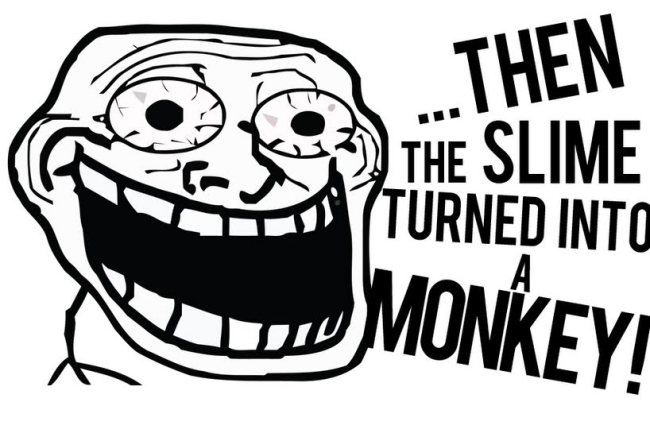There are many arguments lodged against evolution. Some of them carry more weight than others. We’ve all heard at least some of these arguments and puns like “evilution” being thrown around. This is part one on the arguments against evolution. It will cover some of the unscientific arguments.
Evolution is just a theory
One of the arguments employed by scientific creationism is to point out that evolution is not a fact, but only a theory. It should be noted that the term “theory” as used in science does not stand opposite to “fact.” Robert Pennock goes on to explain that “[t]o call something a scientific fact is simply to say that it has been so well confirmed evidentially that it is hard to imagine how it could be overturned, though we always have to keep an open mind that the new evidence could do so, if only in principle.” Sehoya H. Cotner and Randy Moore state that a scientific theory “is a related set of hypotheses that together form a broad, testable explanation about some fundamental aspect of nature. That is, a theory is a well-supported broad idea…” An important distinction regarding theory and its relation to fact is that scientific theories do not become facts after they’ve been proven as true, but theories explain facts. Even though the theory of evolution leaves many details yet to be figured out, the key mechanisms of evolution are known as facts.
Richard Dawkins provides two very different definitions of what a theory is:
- A scheme or system of ideas or statements held as an explanation or account of a group of facts or phenomena; a hypothesis that has been confirmed or established by observation or experiment, and is propounded or accepted as accounting for the known facts; a statement of what are held to be the general laws, principles, or causes of something known or observed.
and
- “A hypothesis proposed as an explanation; hence, a mere hypothesis, speculation, conjecture; an idea or set of ideas about something; an individual view of notion.” He states that scientists use the first definition when it comes to the theory of evolution, whereas creationists opt for the second definition.
Keith B Miller provides four characteristics of a good theory: “(1) explanatory power; (2) predictive power (testable expectations); (3) fruitfulness (ability to generate new questions and new directions of research); and (4) aesthetics (e.g., beauty, simplicity, symmetry).” The theory of evolution is a good theory because it explains many branches of science, it generates testable hypothesis and generates new questions for research.
Evolution is a belief/religion
Pennock argues that “[o]n the watered-down notion of faith implied in the criticism there would be no belief that is not based on faith – knowing one’s birthday, that fluoride protects against cavities, and so on would all be matters of faith – so the concept would lose its important, distinctive meaning. These simple beliefs and other scientific conclusions are not based on faith but are inferred from the evidence of observation. To abuse the notion of faith so that it extends to such quotidian beliefs is to gut it of its theological significance.” Simply put: one short-changes both science and belief.
Charles Darwin renounced the theory of evolution on his deathbed
This argument is void. Even if Darwin did renounce his theory on his deathbed, it would not change the validity of his theory. Biologists, geologists, and other scientists do not accept the truth of evolution on the basis of Darwin’s authority but on the basis of evidence.
Charles Darwin was an atheist
One cannot classify Darwin as an atheist. Hewas never an atheist, but instead leaned more towards agnosticism. In a personal letter Darwin wrote the following: “In my most extreme fluctuations I have never been an Atheist in the sense of denying the existence of a God. I think that generally (and more and more as I grow older), but not always, that an Agnostic would be the more correct description of my state of mind.” He moved away from a theistic view of a God that intervenes in the creation to a deistic view where God is further away and does not intervene. In another letter, Darwin wrote: “I had no intention to write atheistically. But I own that I cannot see, as plainly as others do, & as I should wish to do, evidence of design and benevolence on all sides of us.” As with Darwin renouncing his theory on his deathbed, even if Darwin was an atheist, it would not make any difference to the scientific validity of his theory.
Naturalism is a religion
Many writers state that naturalism is a religion. Pennock states that “naturalism is not necessarily tied to specific ontological claims; its base commitment is to a method of inquiry… it is a methodology that is rationally justified and that is accessible to all.” Naturalism is concerned with study of the natural world, not the supernatural world. Since ancient times the term has been associated with secularism such as Epicureanism and materialism, but the term has also been associated with certain religious views, eg. pantheism and natural theology.
Pennock describes the situation with insight and wit: “It is misleading for creationists to characterize science in general and to define evolution in particular as “godless.” Science is godless in the same way that plumbing is godless. Evolutionary is no more or less based on a “dogmatic philosophy” of naturalism than are medicine and farming.”
Evolution Has Never Been Proven
David T. Williams argues that “despite the evidence for evolution, this falls short of proof, and there remain weighty objections to the idea, and not just that evolution, on at least the macro scale, has not been demonstrated; it falls short of the verification that scientific rigour demands. It is at best a hypothesis…”
Dawkins states that “the best scientists can do is fail to disprove things while pointing to how hard they tried.” The vast majority of the evolutionary history happened before it could be observed by sentient beings and the processes of evolution are mostly too slow to be observed within an individual’s lifetime.
Pennock points out that proof depends on what the definition of “proof” is that one is working with. One example is that evolution lacks “proof” from Scripture and another example is the thought that only that which leaves one without anything less than complete certainty is not proof. A third example is the language used. Scientists and philosophers of science often speak of “evidence” instead of “proof’ and say a hypothesis has been “confirmed” instead of “proven.”
Sources:
Brooke, J H 1985 The Relations Between Darwin’s Science and his Religion in Durant, J (ed.) 1985. Darwinism and divinity: Essays on evolution and religious belief. Oxford: Basil Blackwell. 40-75.
Cotner, S & Moore, R 2011. Arguing for evolution: An encyclopedia for understanding science. Greenwood: Santa Barbara.
Daintith, J & Martin, E (eds.) 2010. Oxford dictionary of science. Oxford: Oxford University Press.
Darwin, F (ed.) 1898. The life and letters of Charles Darwin. Vol I. New York: D Appleton and Company.
Miller, KB, An evolving creation: Oxymoron or fruitful insight? in Miller, K B (ed.) 2003. Perspectives on an evolving creation. Grand Rapids: William B Eerdmans. 3-14.
Pennock, R T 2002. Tower of Babel: The evidence against the new creationism. Cambridge: MIT Press.
Williams, D T 2010. Evolution through kenosis. The Expository Times 121:390. 390-394.




You might be interested in this term if you haven’t already encountered it: http://rationalwiki.org/wiki/PRATT
LikeLike
Thanks, I’ve never encountered it before.
LikeLike
Pingback: Arguments Against Evolution pt. 8 | TheoGoth
Hi Theogoth
You might also like this list of arguments (not to use):
http://creation.com/arguments-we-think-creationists-should-not-use
and
http://creation.com/moving-forward
Blessings
LikeLike